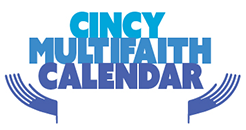Isolation is as bad for you as smoking. Lonely people are 50 percent more likely to die earlier than those with healthy social relationships. Data from the Health Resources & Services Administration shows nearly three and a half million people struggle with social isolation, loneliness, and living alone — and that was before the onset of Covid-19. More recent numbers show loneliness and social isolation have increased 20 to 30 percent, and emotional distress has tripled during the pandemic.
Throughout 2021, the K’vod Outreach Center has continued to raise awareness and educate the community on the negative impacts of isolation. Identifying at-risk seniors is why Jewish Family Service (JFS) has created the K’vod Outreach Center.
Rabbi Yair Walton, the K’vod Outreach Coordinator, has followed community outreach best practices created by June Ridgway, Director of AgeWell Cincinnati. The two worked closely throughout 2021, and continue to collaborate as the pandemic stretches into 2022. “Professionals in the field may see social isolation among older adults as a problem, but many in the community aren’t aware of the extent of the situation,” said Ridgway. “That’s why we have talked to Jewish communal professionals, family and friends of older adults, as well as older adults themselves, to help raise awareness of this serious problem.”
The K’vod Outreach Center has a four-pronged approach to its service: community education, identifying socially isolated seniors, connecting them to the K’vod Outreach Center, and engaging with volunteers.
“They’ll have a meeting with me,” Rabbi Walton explained, “to see where they are and what services they need. There will also be a survey to get an idea of who they are and what they want to get out of the program. That’s what really attracted me to this opportunity: the ability to help people by making them still feel connected to other human beings.”
There are several ways seniors can get involved — from learning technology with volunteers to teaching classes on anything they’re passionate about. “I tell the older adults you still have so much to give to this world. You still have things to share. You’re not done.”
“We’re interested in those people who, for some reason, are not picking up the phone and calling,” said Ann Burke, Vice President of Client Services at Jewish Family Service of the Cincinnati Area. “We want them to have the fullest life from all aspects — socially, emotionally, physically. Because seniors still have a lot to give.”
Rabbi Walton said he is excited to be doing rabbinic work for people who may or may not be connected to the Jewish community in other ways, but are feeling a need for more interactions. “One of my most frequent outreach contacts is Catholic. People now have an idea,” he said, “of just how much they need each other. How much a hug means to another human, or even a high five. I think Covid has made isolation so much more real. Our society now sees this as a real health issue, and treating it has measurable outcomes in people’s ability to live longer.”
For Rabbi Walton, and everyone involved in the outreach center, honor, dignity, and respect are the top priorities in every interaction they have. “That center’s name — K’vod — is inspired by our moral obligation for people who still want to be involved with the community.”
For more information about the K’vod Outreach Center, visit JFS online at www.jfscinti.org/kvod. To reach out directly to Rabbi Yair Walton, call him at (513) 368-2256 or email him at ywalton@jfscinti.org.




